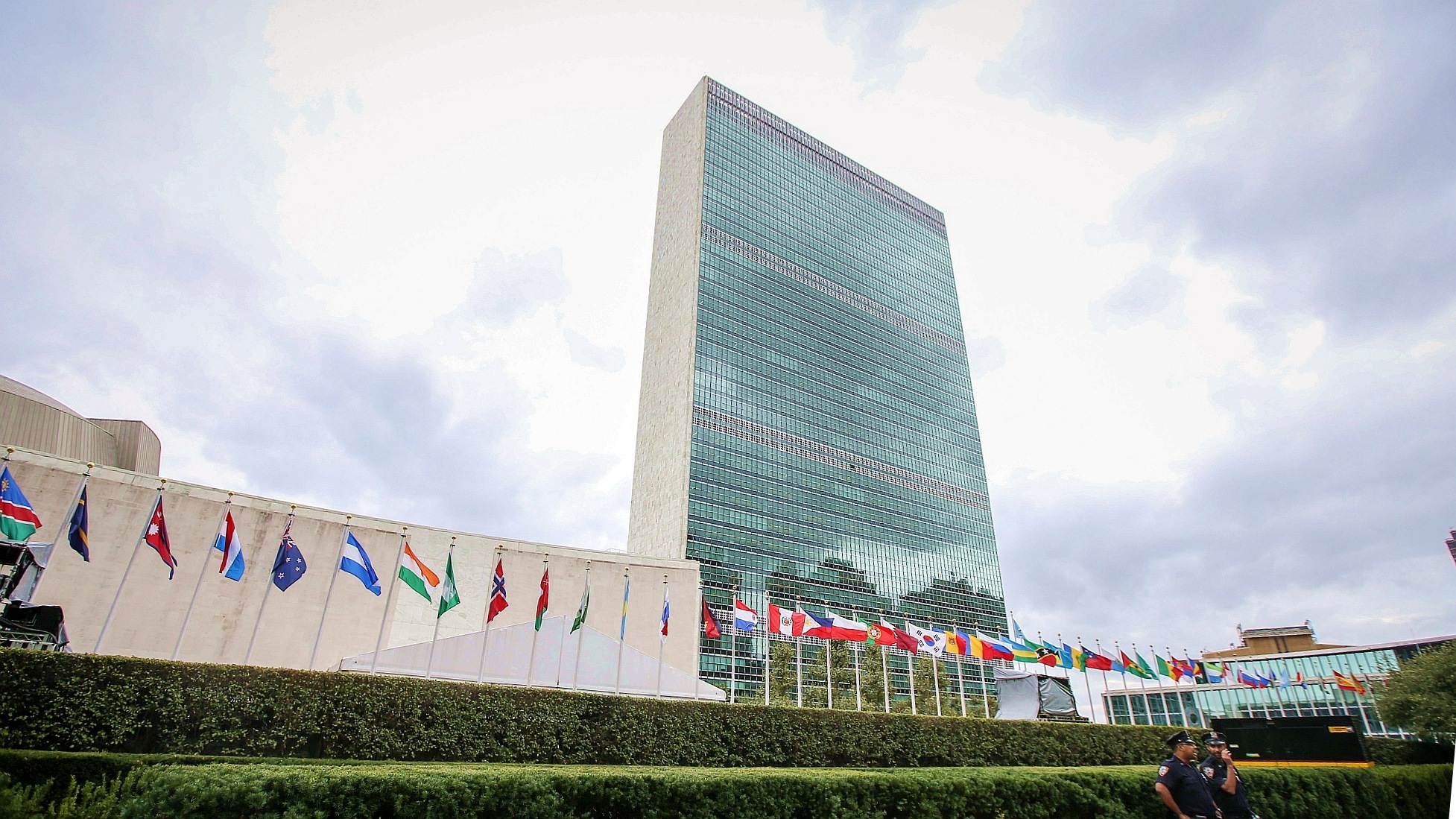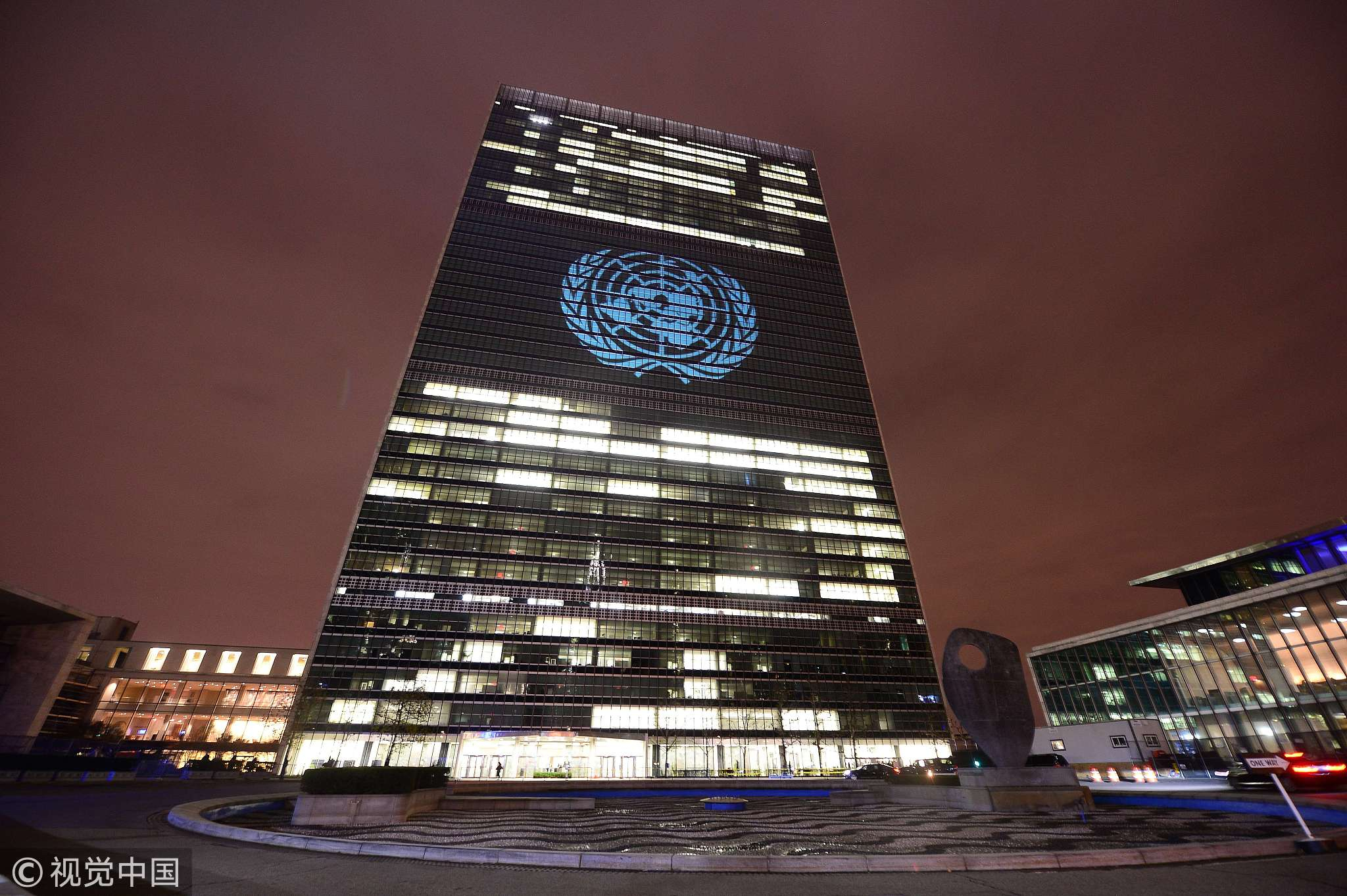
Opinions
12:06, 09-Oct-2018
Opinion: No country can solve global questions on its own
Updated
11:42, 12-Oct-2018
CGTN's The Heat

Multilateralism is a very important foundation for maintaining a stable world order after World War II. From the practical perspective, multilateralism is an international activity that coordinates national policies and actions in the group of three or more countries.
It implies the requirement for countries to negotiate needs non-discriminatory rules and order, emphasizing restricting countries' own behavior when dealing with foreign relations, coordinating mutual interests and cooperating to solve the related problem through negotiation.
The major multilateral mechanisms in the world today include the United Nations(UN), the International Monetary Fund, the World Bank, and the World Trade Organization.
Multilateralism reflects the spirits of equal consultation, openness, inclusiveness, and win-win cooperation. Multilateralism has long been consensus within the international community.

The logo of the United Nations is projected on its headquarters in New York on November 22, 2013. /VCG Photo.
The logo of the United Nations is projected on its headquarters in New York on November 22, 2013. /VCG Photo.
To discuss the role of the UN in today's world, the spokesperson for the UN Secretary-General, Stephane Dujarric pointed out that the UN is an organization of 193 member states and it is only as strong as the collective will of the member states wants it to be in dealing with global problems.
The UN hopes that member states come together and understand the vast majority of problems they face, tackling issues such as climate change, health pandemics, migrant and refugees.
However, this has recently been under fire. "We are seeing in the world over, a questioning of multilateralism and attacks on multilateralism," said Dujarric. The UN is trying to rebuild the people's trust to institutions at the global, national and local level.

The United Nations Under-Secretary-General for Humanitarian Affairs and Emergency Relief Coordinator Mark Lowcock speaks with men at a UN camp for refugees in Niger, September 10, 2017. /VCG Photo.
The United Nations Under-Secretary-General for Humanitarian Affairs and Emergency Relief Coordinator Mark Lowcock speaks with men at a UN camp for refugees in Niger, September 10, 2017. /VCG Photo.
The JCPOA (Joint Comprehensive Plan of Action) is a critical victory for diplomacy and against nuclear proliferation. Dujarric emphasized that the UN should do whatever they can do to support the agreement and ensure that it survives.
As for the statement "the deal of Paris Accord cannot survive without the United States," Dujarric said that the business sector and local sub-nation governments of the United States and other countries are committed to meeting targets in effect. He thinks that those targets can still be met.
"The one way to stop the movement of people who are fleeing conflicts is to stop those conflicts,” said Dujarric.
Dujarric stated that the UN is trying to push and pull the parties to the table to find the political solution. In the meantime, the UN is continuing the massive humanitarian work.

The opening of the case between Iran and the US at the International Court of Justice (ICJ) in the Hague, on August 27, 2018. /VCG Photo.
The opening of the case between Iran and the US at the International Court of Justice (ICJ) in the Hague, on August 27, 2018. /VCG Photo.
At last week's UN General Assembly, US President Donald Trump rejected what he termed the ideology of globalism, and he talked again of his "America First" policy.
The United States has shown a clear tendency to unilateralism and protectionism in recent years. The United States over the last period has withdrawn from several multilateral processes on climate change of Paris climate accord, on migration the Human Rights Council and reducing the funding of UN operation in Palestine.
The US government has also ignored the international community's opposition to pull out of the Iranian nuclear deal and imposed tariffs to promote trade protectionism and most recently announcing withdrawal from the International Court of Justice processes.
During the United Nations General Assembly, world leaders gathered in New York to trumpet their commitments to the multilateral system. Almost all leaders except Trump took to the UN stage to tout his policy of nationalism during a high-level week of speeches at the United Nations.
01:17

"It is important to stress that there is no contradiction between countries supporting their national interests and realizing that they have to reach global agreements," said Sarah Cliffe, director of New York University's Center on International Cooperation. "It is natural for all countries to bring their national interests to the UN."
Sarah Cliffe pointed out that there is no country that can solve these challenges on its own.
The UN is the primary platform for reaching deals related to the global community. Also, all countries really need to put their effort into those shared interests instead of their own divisions.
"I think the United States can serve itself better and serve the world better if it is more engaged with the rest of the world," said Victor Gao, vice president of the Center for China and Globalization. "Hiding behind national walls will not serve any constructive purpose, it only serves very short-term interest."
For China's perspective, Gao stated that mankind as a whole needs to think more about integrated interests and come up with the global solution of many problems with collective and global efforts. Unilateral policy by any country will harm itself and humanity.
The Heat with Anand Naidoo is a 30-minute political talk show on CGTN. It airs weekdays at 7:00 a.m. BJT and 7:00 p.m. Eastern in the United States.
(If you want to contribute and have specific expertise, please contact us at opinions@cgtn.com.)

SITEMAP
Copyright © 2018 CGTN. Beijing ICP prepared NO.16065310-3
Copyright © 2018 CGTN. Beijing ICP prepared NO.16065310-3